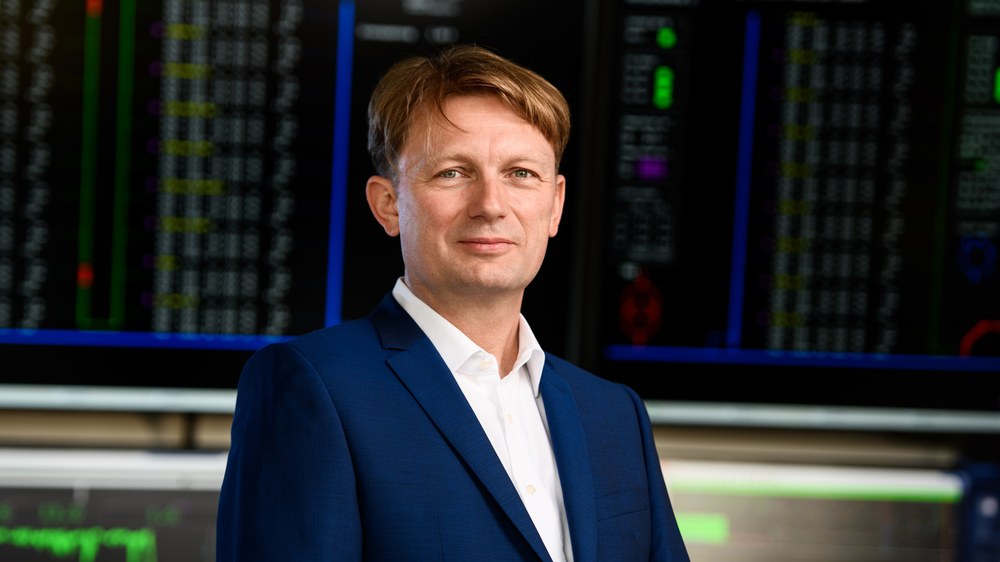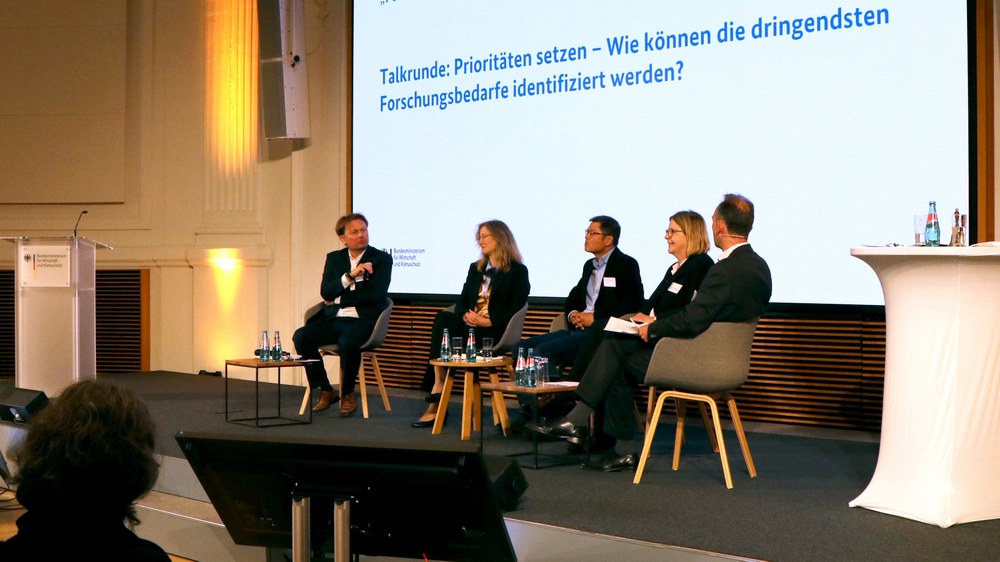"Must achieve climate protection targets in many conceivable 'energy futures'"


Project Management Jülich / Research Centre Jülich GmbH
- Robert Habeck, Federal Minister for Economic Affairs and Climate Action, hosted the kick-off event of the Energy Research Networks for the 8th Energy Research Programme in Berlin on 15 October 2024.
- As a participant in a panel discussion, Institute Director Prof. Carsten Agert spoke about the currently most pressing research needs for the energy transition.
- Agert took part in his role as co-spokesperson for the "Infrastructure and System Integration" cluster in the Hydrogen Research Network.
- Focus: Energy, political relations, research transfer
As part of the Energy Research Networks' kick-off event for the 8th Energy Research Programme, Institute Director Prof. Dr Carsten Agert emphasised the importance of integrative energy scenarios for a successful transformation of the energy system at the Federal Ministry for Economic Affairs and Climate Action on 15 October 2024. As co-spokesperson for the "Infrastructure and System Integration" thematic cluster in the Hydrogen Research Network, Agert took part in a panel discussion on the most pressing research needs for the energy transition in front of around 200 participants.
From an economic and social perspective, it is absolutely essential to align upcoming steps with scientifically mapped out transformation paths. "That's why we need to critically reflect on the accuracy of scenarios and pay more attention as a community to ensuring that we are robustly positioned in the scenarios," said Agert. "It's about achieving our climate protection goals in scenarios not just in one, but in many conceivable 'energy futures'."
In another key topic, Agert explained how the Hydrogen Research Network used a bottleneck analysis to successfully launch a "roadmapping" to prioritise the market ramp-up of the German hydrogen infrastructure by 2030: "Put simply, we looked for reasons that could most likely prevent the market ramp-up - to research precisely these aspects in order to prevent them". On this basis, a wide range of system aspects were analysed, from international ship-based hydrogen transport to pipeline transport in the distribution grids, as well as their respective interactions with each other. The storage infrastructure, for example, was identified as a potential bottleneck in infrastructure planning. As a result, this sub-area has increasingly become the focus of research.
Federal Economics Minister Robert Habeck, who opened the event, emphasised the exchange between research and practice as the basis for successful innovations and their rapid application in industry and society. Energy research is particularly important in this context: "It is indispensable on the path to the complete transformation of the energy system. Energy research not only provides the necessary technological contributions, but also supports the transfer and acceleration of the energy transition."
